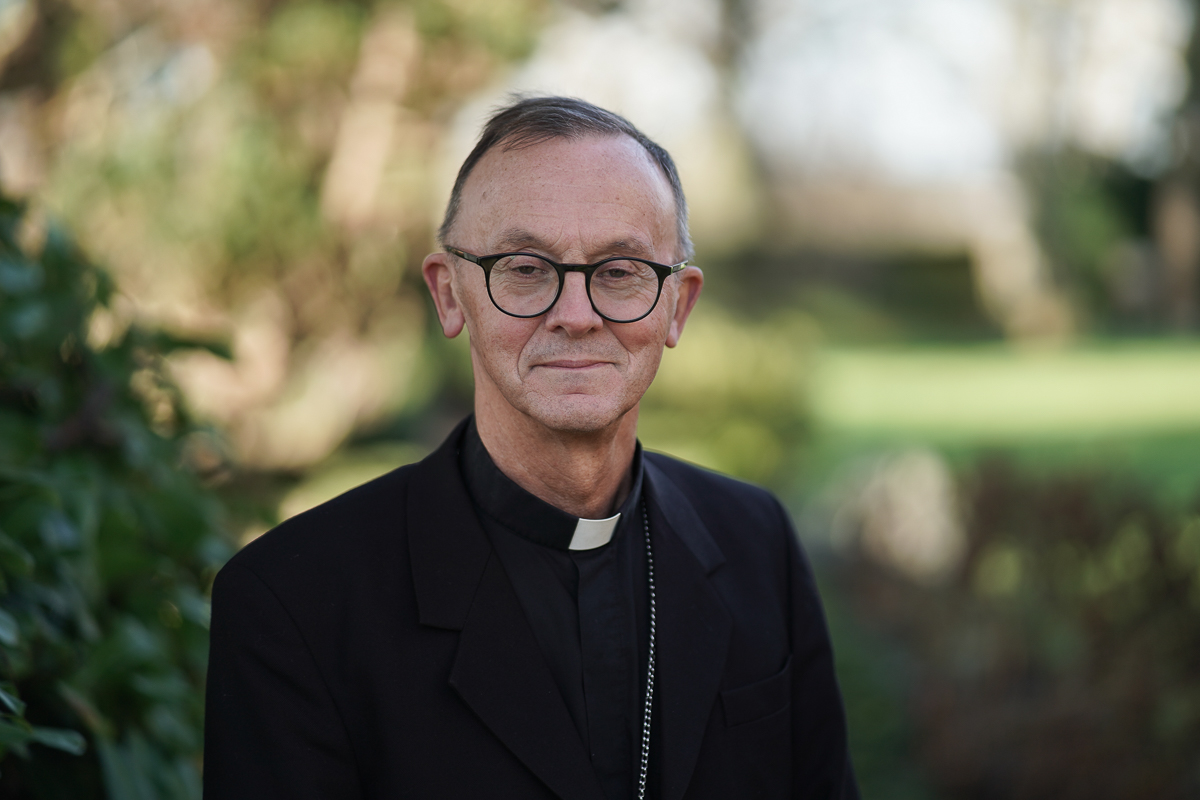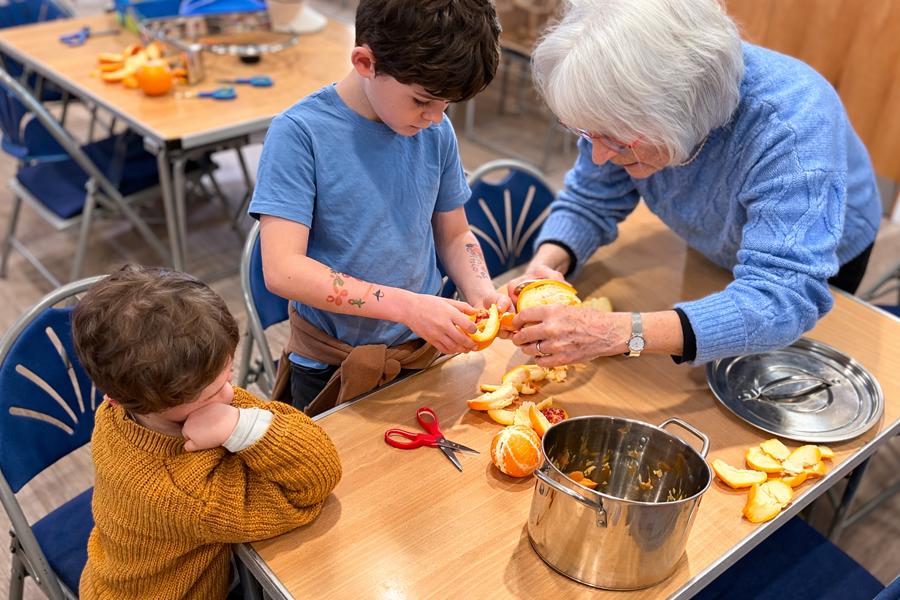.jpg) The national church has agreed in principle to allocate significant funding to our diocese over the next seven years, investing in our plans to grow as Kingdom People and supporting the priorities agreed by the Diocesan Synod.
The national church has agreed in principle to allocate significant funding to our diocese over the next seven years, investing in our plans to grow as Kingdom People and supporting the priorities agreed by the Diocesan Synod.
The Strategic Mission and Ministry Investment Board (SMMIB) will work in partnership with us on our strategy for growth as part of the first awards to be given since the board was set up earlier this year.
The SMMIB has agreed in principle to an estimated investment of £6.8 million – with funds released as detailed plans are developed, which will support the renewal of seven churches in Dudley and Redditch. This will form phase 1 of our plan to ensure that each major area of population has at least one larger healthy and sustainable church by 2030 - one with at least 150 people attending in an average week. The Diocese will also receive £885,000 to help build its capacity to deliver its programme of growth, including investment in the training of clergy and lay leaders. Most of the national funding will create posts in parishes to increase the resources on the ground, with a couple of additional posts in the diocesan office to support implementation of our plans.
In February, Bishop’s Council also approved the funding of our plans to increase the number of children and young people’s workers in our parishes, encouraging parishes to establish new worshipping communities and the investment in training our clergy and lay leaders. Taken together, this means we have a largely fully funded approach to the priorities approved by Diocesan Synod last November, and without any additional cost being borne by Ministry Share.
Bishop John said: “We are delighted that the Strategic Mission and Ministry Investment Board has also enthusiastically endorsed our vision to ensure we have as many healthy and sustainable churches as possible by 2030. We know we need to make major changes if we want to reverse the decline in numbers of people attending our churches; this funding along with our investment in our other priorities will, by God’s grace, enable us to do this.”
Diocesan Synod approved our priorities at its November meeting. Between now and 2030, we aim to:
- Double the number of children and young people worshipping in our churches compared to 2019 figures, investing in more paid children’s, families’ and youth workers so that we have at least one church with a flourishing young peoples’ ministry in each major area of population, and two such churches in each deanery.
- Create 100 new worshipping communities offering a range of ways for people to come to faith and worship God. (eg Forest Church/ Café Church/ Walking Church)
- Invest in the renewal of around a dozen churches to ensure that each major area of population has at least one church with 150 people attending weekly, enabling them to support other local churches.
- Invest in our clergy and lay leaders, providing training and development opportunities to enable them to grow and feel supported and equipped for mission. We want to make the Diocese of Worcester one of the most attractive places in which to minister.
The plan to meet these priorities includes the creation of around 40 new posts – over 90% of which will be in parishes in the form of additional ministers (lay and ordained) and children and families’ workers as well operation and administrative support.
Click on the headings below to read the answers to these questions.
Why isn’t this funding being put into more clergy for our churches?
We know we need to try something different if we want to reverse the decline in the numbers of people coming to churches in our diocese. We are deliberately investing in growth in areas where we can see unrealised potential. This includes the recruitment of more children and youth workers and community ministers in parishes, as well as additional clergy in our renewal churches. We will also continue to support the provision of existing clergy through the Ministry Support Fund – supporting those benefices not yet able to meet the costs of ministry in full.
Does this mean we no longer need to worry about paying our Ministry Share?
Ministry Share pays for the cost of ministry received in your parish and it’s important this continues to be paid. This new funding will enable us to invest in mission and provide support for parishes to find new ways to reach out to their communities.
Is it still the plan to reduce the number of clergy in the diocese?
The introduction of Ministry Share means that decisions on the number of clergy posts are based on local discussions. There is no longer a central plan to reduce clergy numbers. We want to see as many ministers as we can afford, and in a couple of cases, Ministry Share has already led to parishes seeking an increase in the number of posts.
How were these priorities arrived at?
These priorities are an evolution of our long-term Kingdom People vision. They were developed in consultation with a number of different groups and were approved by both Bishop’s Council and the Diocesan Synod.
Where is the diocesan element of the funding coming from? Will it increase Ministry Share?
The Diocesan funding uses money which has been freed up from investments alongside some Lowest Income Communities funding. It will have no impact on Ministry Share, which pays for our existing ministry across the Diocese.
Why is Dudley receiving so much investment?
The Borough of Dudley is the most densely populated area of our Diocese and with 350,000 people living there, this is 40% of the whole population of our diocese. Many of the churches there are small, but with some additional investment have the potential to reach many more people. Top Church in Dudley town centre has grown from a handful of members to a regular congregation of over 100 and we believe that this growth can be replicated elsewhere in the Borough. The investment into Dudley (and St Stephen’s Redditch) is only phase 1 of our renewals plan and future phases will see applications for funding for renewals in our other major areas of population (eg Kidderminster).
How can my parish receive some of this funding?
There is plenty of opportunity for all parishes to benefit from the support offered through the setting of these priorities. We will shortly be announcing help for churches wanting to establish a new worshipping community and to connect with an employed children’s and youth worker, parishes should contact Simon Hill in the first instance. Churches can also apply to the Healthier churches Fund (for larger grants) and the Kingdom People Fund (for grants of up to £1000) if they have an idea which they feel would benefit from additional funding.
What about smaller, rural churches – where do they fit into this plan?
We are already investing in our smaller churches through the appointment of our Dean of Smaller Churches, Alison Maddocks, who can offer practical suggestions to make life easier, including the Church Buildings Management Partnership. We are also looking to support our rural churches through establishing mission areas, and by developing a centre of excellence over the next few years.
I’ve heard there are lots of new posts being created in the diocesan office. Why isn’t this funding going directly to parishes?
The funding being invested into our new priorities will enable around 40 new posts to be created. 90% of these will be in parishes in the form of additional ministers (lay and ordained) and children and families’ workers as well operations and administrative support. There will be two new part-time diocesan posts based in parishes to help with worshipping communities and link up our renewal projects and two posts based at the diocesan office to strengthen our training and communications support. There have been a number of other diocesan posts recently advertised because members of staff are retiring or moving on.
.jpg) The national church has agreed in principle to allocate significant funding to our diocese over the next seven years, investing in our plans to grow as Kingdom People and supporting the priorities agreed by the Diocesan Synod.
The national church has agreed in principle to allocate significant funding to our diocese over the next seven years, investing in our plans to grow as Kingdom People and supporting the priorities agreed by the Diocesan Synod.

